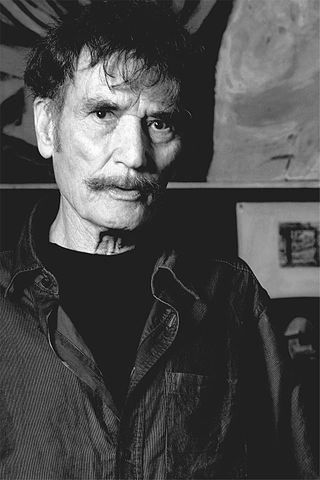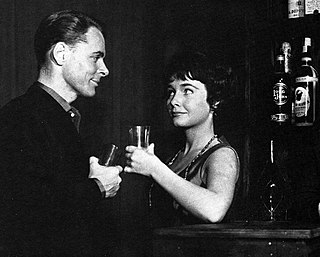Related Research Articles
The music of Iran encompasses music produced by Iranian artists. In addition to the traditional folk and classical genres, it also includes pop and internationally celebrated styles such as jazz, rock, and hip hop.

Shiraz University is a public university located in Shiraz, Fars, Iran, established in 1946. Being one of the oldest and most prestigious modern universities in Iran, Shiraz University is listed among the top three research-oriented schools in the nation according to a ranking of Iranian universities based on scientific output. In the first report of state universities ranking and among almost 70 universities and higher education institutes, Shiraz University is regarded as a tier-one university.
The International Centre for Theatre Research, sometimes also known as The International Centre for Theatre Creation, was founded in 1970 by Peter Brook and Micheline Rozan. It is often abbreviated to the acronym CIRT, as in French the group is called the Centre International de Recherche Théâtrale. The centre is a multicultural theatrical research and production company based out of the Bouffes du Nord theatre in Paris since 1974.

Anthony Charles Hockley Smith is a British novelist and playwright from Kew.

Alireza Shapour Shahbazi was a prominent Persian archaeologist, Iranologist and a world expert on Achaemenid archaeology. Shahbazi got a BA degree in and an MA degree in East Asian archaeology from SOAS. Shahbazi had a doctorate degree in Achaemenid archaeology from University of London. Alireza Shapour Shahbazi was a lecturer in Achaemenid archaeology and Iranology at Harvard University. He was also a full professor of archaeology at Shiraz University and founded at Persepolis the Institute of Achaemenid Research in 1974. After the Islamic revolution, he moved to the US, firstly teaching at Columbia University and then later becoming a full professor of history in Eastern Oregon University.

Ta'zieh means comfort, condolence, or expression of grief. It comes from the roots aza which mean mourning. It commonly refers to passion plays about the Battle of Karbala and its prior and subsequent events. Sir Lewis Pelly began the preface of his book about Ta'ziyeh maintaining that "If the success of a drama is to be measured by the effects which it produces upon the people for whom it is composed, or upon the audiences before whom it is represented, no play has ever surpassed the tragedy known in the Mussulman world as that of Hasan and Husain." Years later Peter Chelkowski, professor of Iranian and Islamic studies at New York University, chose the same words for the beginning of his book Ta`ziyeh, Ritual and Drama in Iran.

Irma la douce is a 1956 French musical with music by Marguerite Monnot and lyrics and book by Alexandre Breffort. The musical premiered in Paris in 1956, and was subsequently produced in the West End in 1958 and on Broadway, by David Merrick, in 1960. The English lyrics and book (1958) are by Julian More, David Heneker, and Monty Norman.

Jalil Shahnaz was a Persian classical music musician and a virtuoso of the Persian musical instrument, tar.

Nozar Azadi was an Iranian comedian and actor who was famous in Iran in the 1970s, mostly because of his role in TV series such as Italia, Italia, Kaf show, and Okhtapus.

The Screens is a play by the French dramatist Jean Genet. Its first few productions all used abridged versions, beginning with its world premiere under Hans Lietzau's direction in Berlin in May 1961. Its first complete performance was staged in Stockholm in 1964, two years before Roger Blin directed its French premiere in Paris.

The Shiraz Festival of Arts was an annual international summer arts festival, held in Iran bringing about the encounter between the East and the West. It was held from 1967 to 1977 in the city of Shiraz and Persepolis in central Iran by the initiative of Shahbanu Farah Pahlavi.

Natasha Parry was an English actress of Russian descent. The daughter of film director Gordon Parry, she was married to theatre director Peter Brook from 1951 until her death, and is the mother of filmmakers Irina Brook and Simon Brook.

The Vahdat Hall, formerly the Roudaki Hall, is a performing arts complex in Tehran, Iran.
Leonard Rudy Parker Jr. was an American actor in theater, film and television. He is known for his performance in the film Nothing But a Man.
Mohammad Aghebati is an Iranian theater director, scenic designer and actor. He has staged numerous dramas during his career, including Oedipus the King by Sophocles, AKA Jocasta; God’s Dead Words, Hamlet, The Prince of Grief by William Shakespeare, and Kiss You and Tears by Vaclav Havel.
The Alfred Wolfsohn Voice Research Centre was a project established to investigate the therapeutic and artistic potential of vocal expression. The Centre was founded by Alfred Wolfsohn in Berlin during 1935 and re-situated in London during 1943, where he and his contemporaries and successors developed principles and practices that provided the foundations for the use of an extended vocal technique. This technique allows vocalists to extend their vocal range and flexibility beyond that usually heard in speech or song.

Razor's Edge: The Legacy of Iranian Actresses is a 2016 documentary written and directed by Bahman Maghsoudlou. The film examines the Iranian film industry, starting in the 1930s and through the Iranian Revolution of 1979. The film features extensive interviews many with the actresses themselves, and clips from films.

Mohammad B. Ghaffari is an American actor, director and theater researcher. He received his theater training at the School for Dramatic Arts In Tehran, Iran, and was active as a professional actor on the Iranian National Stage. His work has been seen at international theater festivals throughout Europe, the Middle East, and North America, and he has appeared in numerous feature films. He is known as a premier expert on the Iranian theatre tradition, ta'ziyeh, which he has produced and directed numerous times in major international performance venues and festivals to great critical acclaim.
![<span class="mw-page-title-main">Arby Ovanessian</span> Iranian-Armenian[1] film director and stage director](https://upload.wikimedia.org/wikipedia/commons/thumb/8/8c/Arby_Ovanessian%2C_Columbia_University.jpg/320px-Arby_Ovanessian%2C_Columbia_University.jpg)
Arby Ovanessian is an Iranian-Armenian film director and stage director living in Paris.
Peter Geddis (1937–2018) was an English actor.
References
- 1 2 "Orghast at Persepolis". Orghast at Persepolis by A.C.H. Smith. The Complete Review. 2002–2009. Retrieved 25 November 2011.
- 1 2 Smith, Anthony Charles H. (1973). Orghast at Persepolis . Viking Press.
- 1 2 Gorguin, Iraj (1971). Fifth Festival of Arts, Shiraz-Persepolis. Tehran: Public Relations Bureau of the Festival of Arts, Shiraz-Persepolis.
- ↑ Brook, Peter, The Shifting Point: Forty Years of Theatrical Exploration (London: Methuen, 1987.
- ↑ Helfer, Richard; Loney, Glenn Meredith (1998). Peter Brook: Oxford to Orghast. Contemporary Theatre Studies. Vol. 27. Harwood Academic Publishers. ISBN 90-5702-207-9.